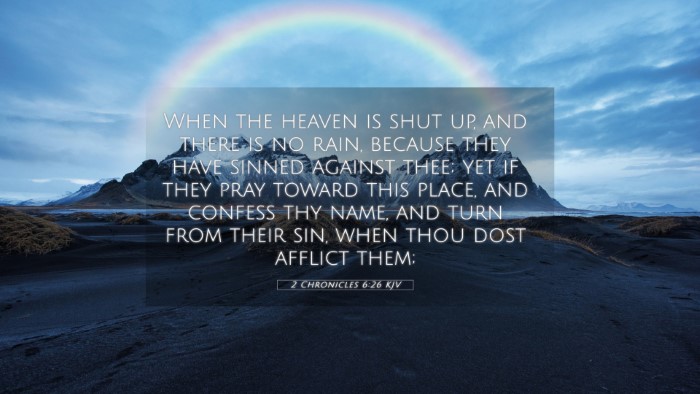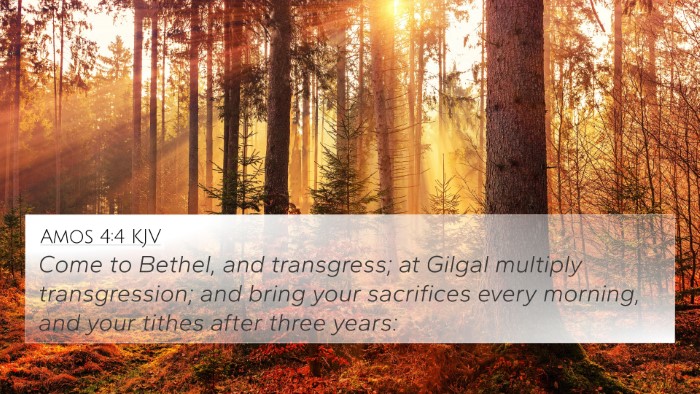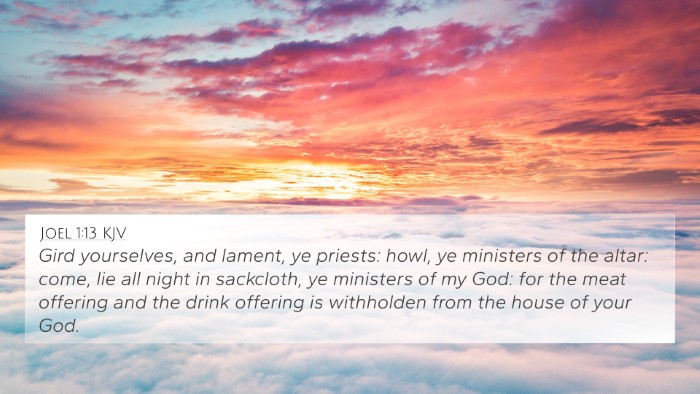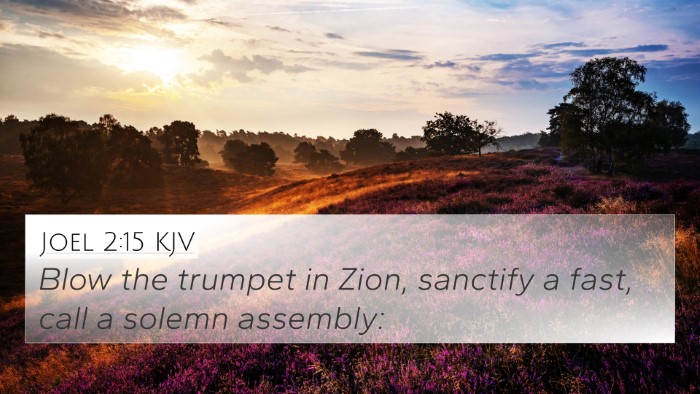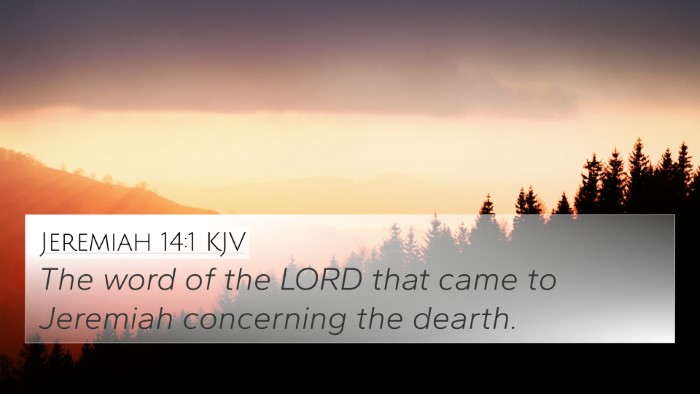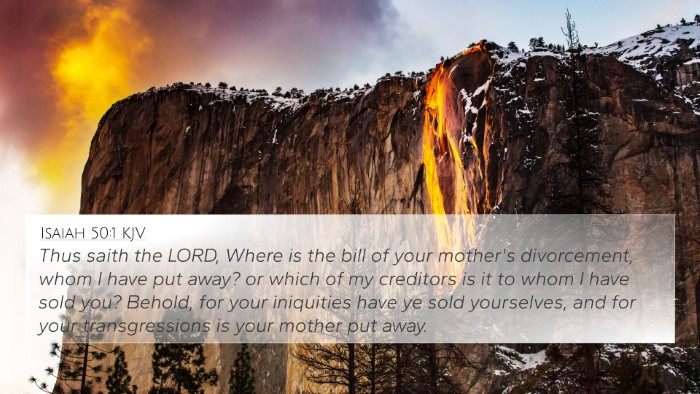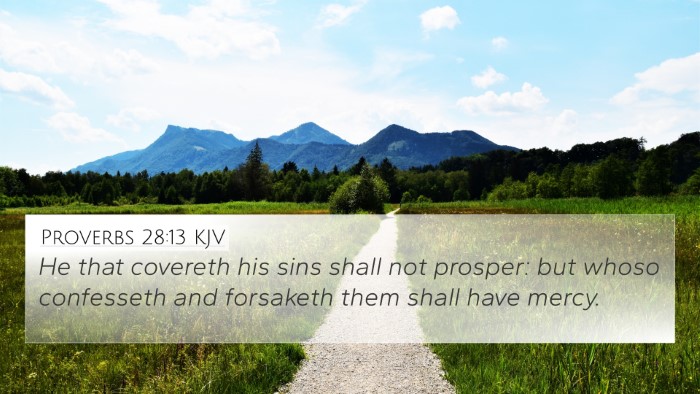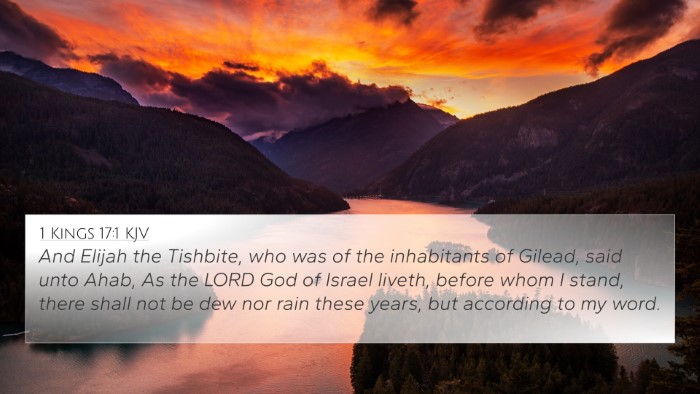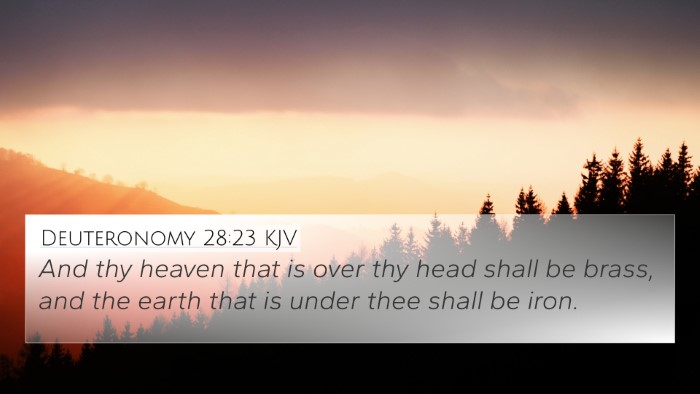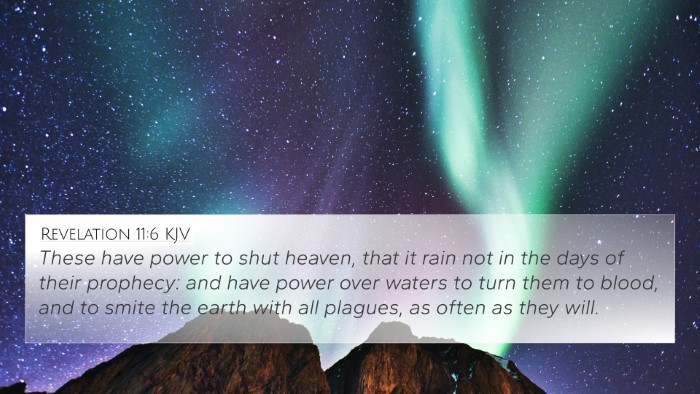Understanding 2 Chronicles 6:26
2 Chronicles 6:26 states:
"When the heaven is shut up and there is no rain, because they have sinned against thee; yet if they pray toward this place, and confess thy name, and turn from their sin, when thou dost afflict them."
This verse holds significant meaning within its historical context of prayer, repentance, and divine mercy. In this summary, we will merge insights from esteemed commentaries to provide a comprehensive understanding of this verse.
Context and Significance
This chapter falls within the narrative of King Solomon's dedication of the Temple in Jerusalem. It encompasses Solomon's prayer during the dedication ceremony, where he pleads with God for the people of Israel, asking for God's attention and mercy in times of crisis.
Commentary Insights
Matthew Henry's Commentary
Matthew Henry emphasizes the dire consequences of sin that can lead to divine judgment, such as droughts and a lack of rain. However, he highlights that God's mercy is readily available when His people turn back to Him in repentance. Solomon's prayer underscores the importance of acknowledging one's sin and the necessity of seeking God's forgiveness.
Albert Barnes' Notes
Albert Barnes notes that this verse outlines a conditional promise from God. He remarks that even during affliction, if the people sincerely turn towards God and confess their sins, they can expect divine intervention. The act of turning toward the Temple symbolizes turning back to God and signifies a heart posture of humility and repentance.
Adam Clarke's Commentary
Adam Clarke emphasizes the communal aspect of repentance and the importance of collective confession before God. He also draws attention to the link between sin and suffering, and how adversity can lead individuals and nations to reflect and seek divine forgiveness. Clarke accentuates the hopeful message that, despite their transgressions, the people can reclaim their relationship with God through genuine prayer.
Thematic Connections and Cross-References
This verse is part of a larger biblical narrative that discusses themes of prayer, repentance, and restoration. Below are several key Bible cross-references that relate to 2 Chronicles 6:26:
- 1 Kings 8:35-36: This passage parallels Solomon's prayer, reinforcing the importance of turning toward God during times of calamity.
- 2 Chronicles 7:14: This verse echoes the call for humility and prayer, emphasizing God's promise to heal the land if His people repent.
- Psalm 51:17: Acknowledges that God desires a broken spirit and a contrite heart, which aligns with the theme of repentance in 2 Chronicles 6:26.
- James 5:16: Discusses the power of prayer in bringing healing, closely connecting to the prayerful aspect of Solomon’s plea.
- Isaiah 55:7: Calls on the wicked to forsake their ways and return to the Lord, mirroring the sentiments in 2 Chronicles 6:26.
- Hosea 14:1-2: Encourages Israel to return to God and confess their sins, reinforcing the action of seeking divine mercy through prayer and acknowledgment of wrongdoing.
- 2 Chronicles 20:9: Highlights a similar instance of seeking the Lord in times of distress, offering a collective prayer for divine intervention.
Conclusion
In conclusion, 2 Chronicles 6:26 serves as a poignant reminder of God’s readiness to forgive and restore when His people turn back to Him. The integrated insights from various commentaries reveal the importance of repentance, prayer, and community. Understanding this verse in light of its surrounding context and thematic relevance enhances our appreciation of the broader biblical narrative.
Exploring Connections Between Bible Verses
For those seeking further study on linking Bible scriptures, tools for Bible cross-referencing, and comprehensive resources, the practice of cross-referencing helps to illuminate the connections between verses across the Old and New Testaments. By comparing and analyzing related scriptures, readers can gain a more profound understanding of themes such as repentance, divine mercy, and communal prayer practices.
Recommended Tools for Bible Cross-Referencing
- Using a Bible Concordance to locate specific themes and cross-references.
- Engaging with a Bible Cross-Reference Guide to support deeper study.
- Implementing Cross-Reference Bible Study methods to analyze scriptures effectively.
- Utilizing Bible reference resources to uncover inter-Biblical dialogues.
- Accessing comprehensive Bible cross-reference materials for sermon preparation.

